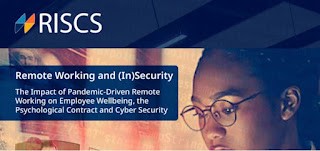Cycon 2024: Oisın Phillips
From the 28th to 31st of May, a number of CDT researchers attended the
NATO Cooperative Cyber Defence Centre of Excellence conference on Cyber
Conflict (Cycon). The conference took place in Estonia’s capital city of Tallinn,
providing an excellent setting for understanding the current state and thinking
of cyber conflict discussion.
From the 28th to 31st of May, a number of CDT researchers attended the
NATO Cooperative Cyber Defence Centre of Excellence conference on Cyber
Conflict (Cycon). The conference took place in Estonia’s capital city of Tallinn,
providing an excellent setting for understanding the current state and thinking
This year's theme was “Over the Horizon” as discussions centered around the
future cyber conflict, and is sure to be beneficial in next year’s theme: “The
Next Steps”. Talks ranged from Technical, Legal, and Strategic. The conference
“Day 0” event was a day to enjoy workshops, including one workshop
conducted by Dr Michael P. Fischerkeller, Dr Emily Goldman, and Prof Richard
Harknett for the purpose of establishing a proactive cyber operational element
into NATO. Other events on this day included a workshop incorporating tabletop
game design into cyber election interference, discussions of AI, and the use
of cyber capabilities in the ongoing war in Ukraine. The day culminated with
The conference began the following day with introductions from Estonian President
Alar Karis, NATO Assistant General for Innovation, Hybrid and Cyber
David van Weel and US Ambassador-at-Large for Cyberspace and Digital Policy
Nathaniel Fick. Not long after completing his journey in the CDT our very
own Neil Ashdown presented in a talk concerning public-private cooperation in
cyber threat intelligence: a highly relevant topic to this years conference and
the most relevant talk of the day according to Vice Adm. Javier Roca, Spanish
Commander of Joint Cyberspace Command. High praise indeed! This followed
by an evening walking tour of Tallinn, getting an opportunity to enjoy the
To echo the mindset of Keynote Speaker Prof Herb Lin, Cycon is a great place
to find out the current thought of those at the forefront of cyber conflict, in
academia, policy, and diplomacy. Hence, the social aspect to such a conference
is always valued. The conference organised social events, such as the aforementioned
networking event and an evening dinner preceding the final day of the
conference, along with the impromptu karaoke sessions that seem to be frequent
during this time. These all provide a great opportunity to be in the same space with
prominent names of cyber conflict research. One moment you're speaking to Dr Max
Smeets about the formation of a European Cyber Conflict Research Initiative, the next
you're piloting an aerial craft through a time trial course in virtual reality.
Cycon provides a great opportunity to form connections with others that share
the same passion for research on matters of cyber conflict. Furthermore, Cycon
provides an opportunity to get immersed and acquainted with those at
the forefront of cyber conflict research; making connections that will make the
experience unforgettable, and increase the potential for collaboration in the
future.



The greatest place to reserve a tent for the Kumbh Mela is Era Camps! Excellent services and cozy tents make for a special occasion.
ReplyDeleteKumbh Mela Camps booking
Great to see events like CYCON 2024 highlighting the future of cyber defence! For students interested in ethical hacking, digital forensics, and data protection, the B.Sc. (Hons.) in Cyber Security is a perfect course to build a career in the ever-evolving tech landscape.
ReplyDelete